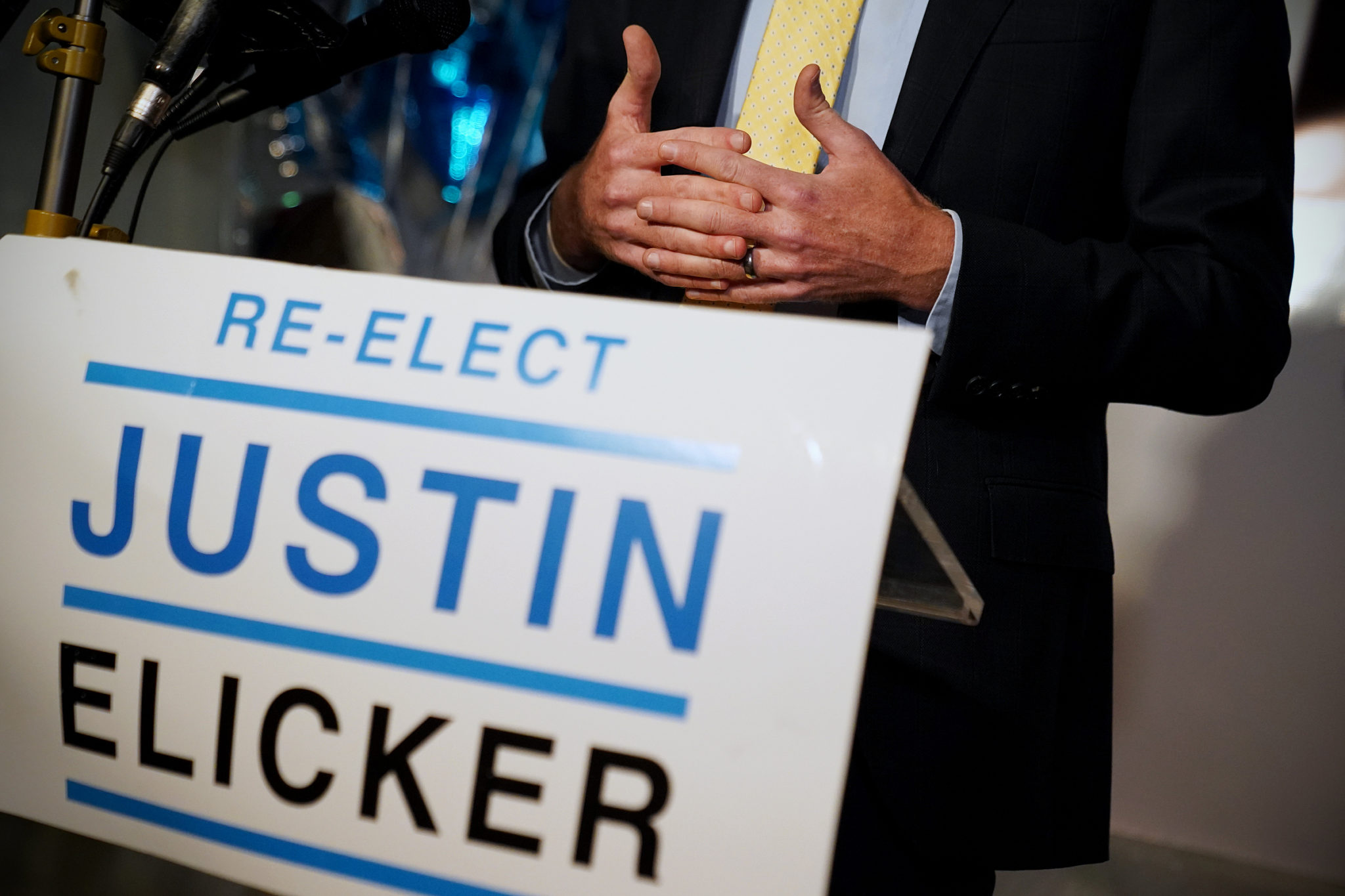Yale affiliates donate 20 times more to Democratic mayoral candidate than to Republican
Yale affiliate donations denote a clear preference for Democratic incumbent Justin Elicker.

Tim Tai, Contributing Photographer
Democratic mayoral nominee Justin Elicker raised nearly 20 times more in individual contributions from Yale affiliates than his Republican challenger John Carlson.
Elicker faced off against first-time challenger Carlson for the mayoral seat during Tuesday’s general municipal election. According to campaign finance reports, Elicker received more than $7,700 in donations from Yale affiliates in the third quarter of the fiscal year, while Carlson received $390. The Elicker reelection campaign that started in January had $169,611 on hand by the end of the quarter. The Carlson campaign, which began in July, raised $26,572.
“I think he’s a remarkable politician,” professor of sociology and Co-Director of the Center for Cultural Sociology Jeffrey Alexander, who contributed to Elicker’s campaign, told the News. “He’s very serious. He’s very cool-headed and he’s analytical. He’s not a bulls–t artist like most politicians.”
Alexander, who also donated to Elicker’s campaign during his first mayoral run in 2019, said he thought Elicker did “a really good job” as mayor and appreciated his concern for “less affluent parts of New Haven” through policies such as setting up vaccination clinics in underserved areas. Alexander said he also appreciated Elicker’s work to get the Tweed Airport expansion project off the ground, which Alexander said would benefit businesses and Yale affiliates.
School of Management professor Andrew Metrick also contributed to Elicker’s campaign. Metrick said he and his wife contributed to Elicker’s campaign each of the times that Elicker ran, including his unsuccessful Democratic primary run in 2013 and his subsequent mayoral bids in 2019 and now.
“We thought that he’s just done a terrific job,” Metrick said. “He’s been a great mayor. It certainly was not an easy time to enter the mayoralty right before Covid hit. He’s done everything that we would have hoped for during this time.”
Alexander said political ideologies can also help explain why Elicker outraised Carlson in this race, with most professors at Yale being center-left of the political spectrum. He thinks it will be a landslide for Elicker, but noted the importance of opposition to show the public what is at stake. Alexander said Carlson entering the race has allowed Elicker to highlight the contrast between a conservative political position and his own.
One of the Yale affiliates who donated to Carlson’s campaign was Christopher Walsh, a research associate at the Yale School of Medicine. Walsh said that although he thinks Elicker is doing “a good job,” he was dissatisfied with the Democratic Party’s monopoly over election positions in New Haven.
Walsh said that he thought New Haven would be best served by having more balance and was happy to support challengers from other political groups.
“What I like most about Carlson is his focus on local quality of life issues for residents,” Walsh told the News. “Additionally, he is courageous and optimistic and I appreciate that he has no affiliation with Yale as a union member or as a graduate.”
While Alexander does not think financial contributions determine the outcome of the race, he does see financial support as an important way to help a message get across.
“I want Elicker to be able to get his message out about his moral commitments to serve underserved communities,” Alexander said. “I want him to be able to hire people or train volunteers so that they can go door-door, so I am hoping that my contribution will make that possible.”
Metrick said the main parts of Elicker’s policies that stuck out to him were achieving a high New Haven vaccination rate relative to similar cities, as well as Elicker’s work on the Tweed airport deal and the new tentative lease on New Haven Union Station. Metrick said he looks forward to seeing what Elicker can do when he does not have a pandemic consuming much of his time and focus.
Elicker also received more donations from Yale affiliates in April than Democrat Karen DuBois-Walton, who was running an exploratory committee at the time. He also raised more than incumbent Mayor Toni Harp did during the 2019 race. Metrick said that during Elicker’s 2019 campaign he believed that many New Haven residents, including Yale affiliates, wanted a change after three terms of Harp’s leadership. He said that Elicker’s work this year reaffirmed his support.
“There’s no reason to move away from Mayor Elicker based on this ‘I need a change,’ when I think he’s really done a terrific job,” Metrick said.
In his last campaign, one of the key positions Elicker ran on was getting Yale to increase its contribution to the city. Alexander said he agrees with that policy and believes Yale can afford it, pointing to the recent increase in the University’s endowment.
While he does not think Yale was “immoral” and said that what Yale did was legal, Alexander noted that he believes Yale can “afford and should pay” the city of New Haven, starting with the schools.
“I think that Yale owes a big, big obligation to help increase the funds available to the city of New Haven,” Alexander said.
Yale spokesperson Karen Peart has previously told the News that Yale’s voluntary contribution to New Haven has risen over recent years. The contribution totaled $13 million last year, the largest of any university to its home city.
Three Yale affiliates who donated to Carlson did not respond to multiple requests for comment.
The New Haven mayoral race will take place on Nov. 2.







